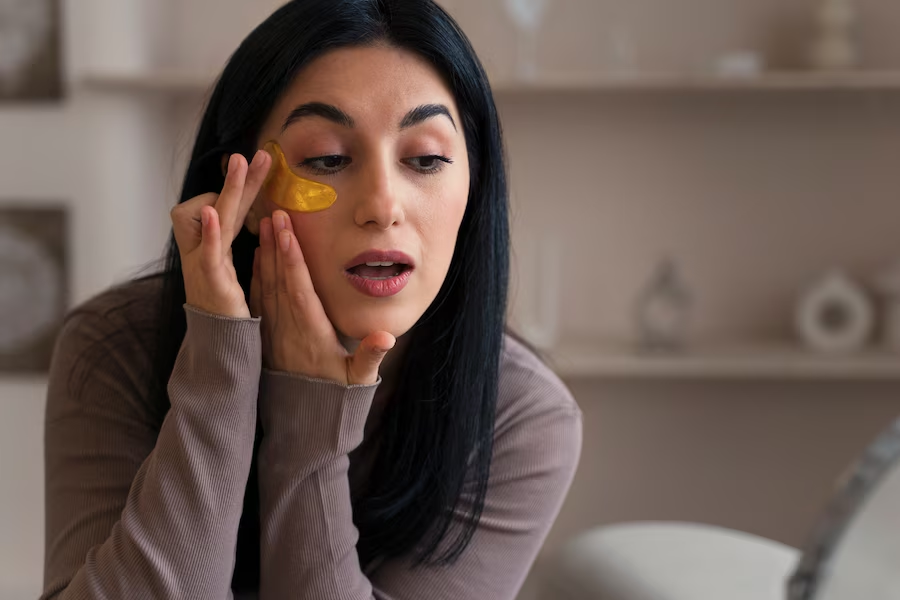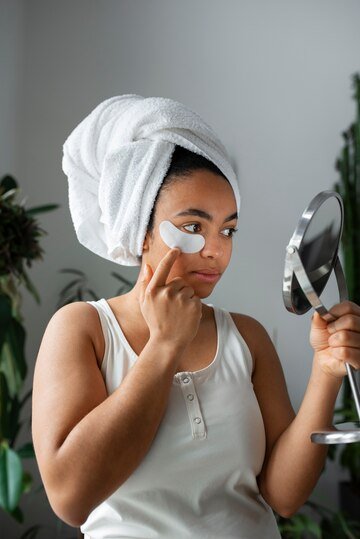Skincare Guide for Dark Spots:- If you are struggling with dark spots on your skin, they may cause stress over how they will look and affect your appearance. Here is our Skincare Guide for Dark Spots to provide advice for how best to care for these problem spots and look your best!
Brown spots may occur as the result of sun exposure or an acne outbreak, but sometimes they can appear due to other sources.
Dark spots, also referred to as hyperpigmentation or melasma, refers to areas of skin which appear darker than its surroundings.
These marks may appear either as small patches or larger splotches of various colors, typically on people with olive or fair complexions but anyone can develop them.
If you are having trouble with dark spots on your skin and need advice on how to treat them, this article is here to help. You will learn everything there is about treating dark spots by reading further.
1) What Are The Causes Of Dark Spots?
Causes for dark spots vary depending on both the individual and severity of their problem, but some of the most frequently seen are: * Sun Damage – Excessive sun exposure can result in dark spots and wrinkles on skin surfaces. Spending too much time outdoors without adequate protection such as sunscreen increases the risk of sun damage such as hyperpigmentation. * Acne breakouts – Dark spots may appear on your skin if you suffer from acne breakouts. Acne is not usually a long-term issue, but the effects can leave permanent marks that are difficult to eliminate. This is especially true if using incorrect skincare products and inheriting certain genes from both parents that predispose you to dark spots; thus increasing the risk even with excellent care practices in place. * Genetics – inheriting certain genes increases your chances of dark spots forming even with good skin care practices in place.

2) How To Find Out Why You Have Dark Spots?
If you have noticed dark spots on your face, consulting with a dermatologist could be very beneficial. They will be able to determine what may be causing these spots as well as provide a plan for treating them. Though you can research on your own and begin treating, it is often beneficial to speak to a medical professional for assistance. A dermatologist can help identify the source of dark spots on your skin, and suggest the most effective course of action. If your dark spots could be the result of something more serious like melanoma, consulting with a dermatologist is advised. Melanoma, which is a form of skin cancer, may cause dark spots. While it is important to monitor these spots and see a doctor if you are concerned, getting professional opinion from someone experienced can provide peace of mind.
3) Exfoliation And Brightening Skincare
Exfoliation is an essential skincare habit you should make part of your regular regimen, in order to remove dead cells that contribute to dark spots. Exfoliating once or twice every two weeks should do the trick – gentle scrubs or an exfoliating product are best used, in order to avoid damaging the skin. Once exfoliation has taken place, using brightening skincare products like serum can help diminish dark spot appearance; one effective product that contains high amounts of vitamin C as it provides both exfoliation and brightening benefits is recommended; other helpful ingredients for brightening include niacinamide and licorice root extract – ingredients great for lightening dark spot appearance are also excellent choices.

4) Vitamin C Treatment
Vitamin C is an antioxidant known to be highly effective at combatting signs of aging and improving skin tone and texture. When used correctly, Vitamin C serums can also provide excellent exfoliating and brightening properties which help combat dark spots. As one of the top skincare products for hyperpigmentation reduction and texture/tone improvement. If using one for dark spots make sure it fits with your skin type properly before looking for one with high concentration of vitamin C – speaking to a dermatologist can assist in selecting an effective vitamin C serum product specific for you!
5) Tretinoin (Retin-A) Treatment
Tretinoin (Retin-A) is an FDA-approved prescription-only treatment to effectively eliminate dark spots. Retinoids like Tretinoin work by increasing cell turnover rates and exfoliating skin. You should use Tretinoin cream or gel daily for 6-8 weeks until you start seeing results, especially those caused by sun damage and acne scarring. You may experience mild irritation or swelling initially when first starting Tretinoin; this is normal and will gradually subside as your skin adjusts to Tretinoin treatment – just remember when using Tretinoin that your skin becomes more vulnerable than normal to sunlight so sunscreen should always be applied daily while using Tretinoin to keep yourself safe!

Conclusion
Dark spots can be difficult to get rid of if you don’t understand their source. Therefore, it is essential that you get tested to identify what’s causing your dark spots before using the appropriate skincare products to eliminate them. A vitamin C serum and retinoid cream could be particularly helpful in eliminating your dark spots quickly.
Also Refer:-Get Clear Skin and Stay Healthy


